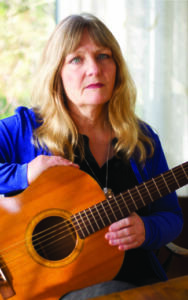1872 An ‘adventure-filled whodunnit’ (for kids)
Shamus, The Urban Rez Dog, P. I.
By Leslie Gentile
Toronto: Cormorant/DCB, 2023
$14.95 / 9781770867079
Reviewed by Linda Rogers
*
 Teacher, singer, and now writer Leslie Gentile’s second middle grade novel is Shamus, The Urban Rez Dog, P.I. There’s no doubt juvenile readers with an appetite for fiction to match Shamus shameless pursuit of treats will be hungering to sample the high adventure promised by a cover full of clues as diverse as a Sherlock Holmes cap, purloined letters, maybe blood diamonds, and a disingenuous cat.
Teacher, singer, and now writer Leslie Gentile’s second middle grade novel is Shamus, The Urban Rez Dog, P.I. There’s no doubt juvenile readers with an appetite for fiction to match Shamus shameless pursuit of treats will be hungering to sample the high adventure promised by a cover full of clues as diverse as a Sherlock Holmes cap, purloined letters, maybe blood diamonds, and a disingenuous cat.
Her first young adult book, Elvis, Me and the Lemonade Stand Summer, resonated with kids who need connection with family, friends, and the world. The quest reflected a child’s longing to comprehend the greatest mystery—to what and whom do I belong? Gentile’s mythical facilitator might be an icon like Elvis or a dog with extraordinary powers; it could be Shamus, his name incorporating all the elements of shame, othering and shamanic gifts, which pretty much lines up with the experience of his adopted family, urban Indigenous kids cut off from the land and cultural practices.
Shamus, the narrator of this adventure-filled whodunnit, is a mutt who overcomes species entitlement to prove dog is indeed god backwards in the language of displaced humans. He has the power.
It is a set up. We know from the starting gun that Shamus is one smart dog with a lust for crime. Gentile does not disappoint as short chapters/mini-episodes roll out and the evidence piles up and Shamus, differentiated by his origins and language challenges, proves his value. (It is hard not to think of Attorney Woo, the hugely compelling Netflix hero, born autistic, quietly studying the law that will save her father’s dignity in the silent room inside her mind as we listen to Shamus’s inner narrative.)
Children love a hero, particularly one who has suffered the injustices they have observed in their lives as probationary people, and Shamus is a perfect fit with that imaginary landscape.
It matters that Shamus is a bit of this and that because breed matters to kids trying on identities in a social order that ascribes different values to cultural regalia varying from torn jeans to ribbon skirts. Like the family who adopts him, Shamus is attached to different moments in history identified as land, rez, and city; and his struggle is their struggle.
Through reading, young people enter the lives of others; their growth as compassionate humans evolves from empathetic storytelling. In a world where there is so much distraction, illiteracy is starvation. A child without stories is a child without bread, panis angelicus, the words of angels. It matters that writers like Gentile, conversant with the sacred laws, have tools to inform and lift younger generations into the fullness of being.

The writer’s apprenticeship was long: motherhood, teaching, lyrical interventions in the mundane, and it prepared her for this role to write books that arrive to astonish readers of all ages, but particularly her target audience: adolescents on the threshold of adult responsibility.
Wasting no time on overture, she leaps into action that lures the imagination of young readers. Starting off full voice, er bark, Shamus bounds in, gathering evidence that will disrupt the conventional wisdom that if there has been a crime (in this case a jewellery heist), logic, aka bigotry, will determine that the culpable individual is an Indigenous single mother, aka model employee. Just as he busted through the cover, Shamus tears into the plot with his insatiable hunger for truth as Gentile guides his wagging tail with a teacher’s understanding of the pacing that will keep a young reader turning the pages. The chapters are short and each presents problems and resolutions; they’re satisfying reads with teasers about future plot development.
Shamus is not the first canine protagonist, but he gives his own spin to the notion that man’s best friend is a worthy interlocutor. Like Flush and countless others, he has character insight that drives the plot to justice, a satisfactory conclusion.The language in this romp is accessible and loaded with sensory detail that teases the appetite. Shamus is the perfect metaphor for a story-craving kid. He is all nose, sniffing out details found in translation, scent to phenomenal object, aka clue. The first instinct, to eat and thrive, drives him to essential discovery.That he is misunderstood is a plot complication relevant to young people that makes sense of their intuition; it attributes value to their life experiences and gives incentive to becoming fully human. Shamus does not need to become human. He is a canine facilitator and that too has value. At every step of the story we know this will be the big reveal.
Shamus, like the baby who knows what he can only express in smiles and tears, determinedly finds a way to work through prejudice to the truth. He IS a family member and CAN fulfil his obligation to the humans who give him food and shelter. As the story arcs toward crisis, the imminent arrest and incarceration of the kids’ innocent mother, Shamus, the almost omniscient narrator, puts down the scent of panic, so we know what it is to be wrongly accused, the fate of too many Indigenous people. It isn’t just Shamus who is in jeopardy, threatened by another incarceration at the pound, but also Mom, the good mother who works to support her family, the loved ones who may go into perilous care when justice is blind in the worst way. This time, we are asked to wonder who will decide right and wrong. As in ALL Indigenous families, the highest court is not a court of law but judgement by wisdom from a council of elders. Grandma knows best.
Without labouring her point, Gentile makes it clear that bigotry, the entitlement of some people and not others to fairness under the law, is a lesson all children can understand. Without preaching, Gentile allows her protagonist to school us by following intuition, that discriminating nose. Bad guys smell bad. Good guys smell good, cats are the enemy, as is, sad to say, the snooty white poodle and the Keystone Cops who throw in a few laughs and some credibility. It is that simple, a cartoon for kids, and the moral arc is the arc of comedy, where all’s well that ends well.
The final act and denouement are worthy of the great French dramatists, farce based on the inversion of family hierarchy. Thou shalt not, and if you do, we shall laugh at you, the principle that has kept oppressed cultures, including domesticated animals, from imploding. “Do the right thing,” a great filmmaker insists, and the actors sort of comply, all but the dogs who are secretly plotting disruption, garbage cans falling one by one, making a lovely noise as they spill the evidence of excess—nice steak dinners.
*

Linda Rogers knows all about the efficacy of poetry that passes as prayer, curse, spell and poultice, and has noticed that poems are springing up like mushrooms in pandemic compost. Whatever works! Without poems it would have been worse. Linda Rogers’ Empress Trilogy is now complete with the publication of Repairing the Hive (Ekstasis), and Friesen Press printed her edited pandemic collection, Mother, the Verb, Swan Sister Treasure Book (2022), the stories of activist artists. Editor’s note: Linda Rogers has recently reviewed an omnibus review of poetry (by Shaun Robinson, Carellin Brooks, Jen Currin, David Ly, Zoe Landale, Gennie Gunn, Joseph Dandurand, Kristina Bresnen, Dale Tracy, and Karen Enns) as well as books by David Bouchard & Kristy Cameron, Karen Whetung & Lindsay Delaronde, Julie Flett, Shawna Davis & Toonsa Jordana Luggi, Nicola Campbell & Carrielynn Victor, and Hetxw’ms Gyetxw (Brett D. Huson) & Natasha Donovan for The British Columbia Review. Her book Crow Jazz (Mother Tongue Publishing, 2018) was reviewed by Paul Headrick and Mother, the Verb, Swan Sister Treasure Book is reviewed by Cathy Ford.
*
The British Columbia Review
Interim Editors, 2023-24: Trevor Marc Hughes (non-fiction), Brett Josef Grubisic (fiction)
Publisher: Richard Mackie
Formerly The Ormsby Review, The British Columbia Review is an on-line book review and journal service for BC writers and readers. The Advisory Board now consists of Jean Barman, Wade Davis, Robin Fisher, Barry Gough, Hugh Johnston, Kathy Mezei, Patricia Roy, Maria Tippett, and Graeme Wynn. Provincial Government Patron (since September 2018): Creative BC. Honorary Patron: Yosef Wosk. Scholarly Patron: SFU Graduate Liberal Studies. The British Columbia Review was founded in 2016 by Richard Mackie and Alan Twigg.
“Only connect.” – E.M. Forster
5 comments on “1872 An ‘adventure-filled whodunnit’ (for kids)”